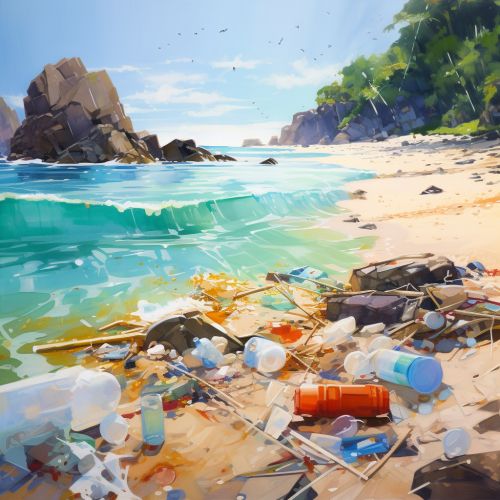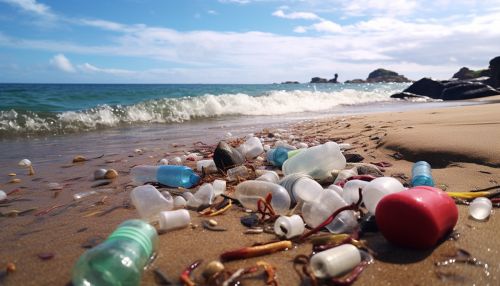Marine Debris
Introduction
Marine debris, also known as marine litter, is human-created waste that has deliberately or accidentally been released in a sea or ocean. Floating oceanic debris tends to accumulate at the center of gyres and on coastlines, frequently washing aground, when it is known as beach litter or tidewrack.
Origins
Marine debris is a global transboundary pollution problem. The waste that makes up marine debris comes from many sources and enters the ocean in many ways. The majority of marine debris is plastic waste, which is persistent, and marine life and seabirds can mistake it for food.


Types of Marine Debris
Marine debris can be categorized as land-based and ocean-based. Land-based sources account for up to 80% of the world’s marine pollution, with the remaining 20% attributed to ocean-based sources.
Land-based Debris
Land-based debris originates from human activities on land, such as littering and poor waste management practices. This debris is carried from land to sea by rivers, winds, tides, and storms.
Ocean-based Debris
Ocean-based debris originates from human activities at sea. These activities include fishing, shipping, and recreational boating. Common types of ocean-based debris include fishing gear, shipping containers, and recreational boat waste.
Impacts of Marine Debris
Marine debris has significant impacts on marine ecosystems, economies, and human health and safety.
Impacts on Marine Ecosystems
Marine debris, particularly plastic, poses a serious threat to marine life. Animals can become entangled in debris or ingest it, often with fatal consequences. Debris can also smother and damage important habitats, such as coral reefs.
Economic Impacts
Marine debris also has economic impacts, particularly on industries that depend on clean oceans and beaches, such as tourism and fishing. The cost of cleaning up debris can also be significant.
Impacts on Human Health and Safety
Marine debris can pose risks to human health and safety. For example, sharp objects can cause injuries, and ingested plastics can enter the human food chain through seafood.
Prevention and Mitigation
Efforts to prevent and mitigate the impacts of marine debris include waste management, education and outreach, research, and policy.
Waste Management
Improving waste management practices on land can help reduce the amount of debris that enters the ocean. This includes reducing, reusing, and recycling waste, as well as properly disposing of waste.
Education and Outreach
Education and outreach efforts aim to raise awareness about the issue of marine debris and encourage behavior change. These efforts can target a range of audiences, from the general public to specific industries.
Research
Research on marine debris can help improve understanding of the issue and inform prevention and mitigation efforts. This can include research on the sources, impacts, and distribution of debris, as well as on effective prevention and mitigation strategies.
Policy
Policy measures can also play a key role in preventing and mitigating marine debris. This can include regulations on waste management, bans on certain types of debris, and international agreements.
